Review: AUTUMN, Park Theatre
A literary tale of unlikely friendship
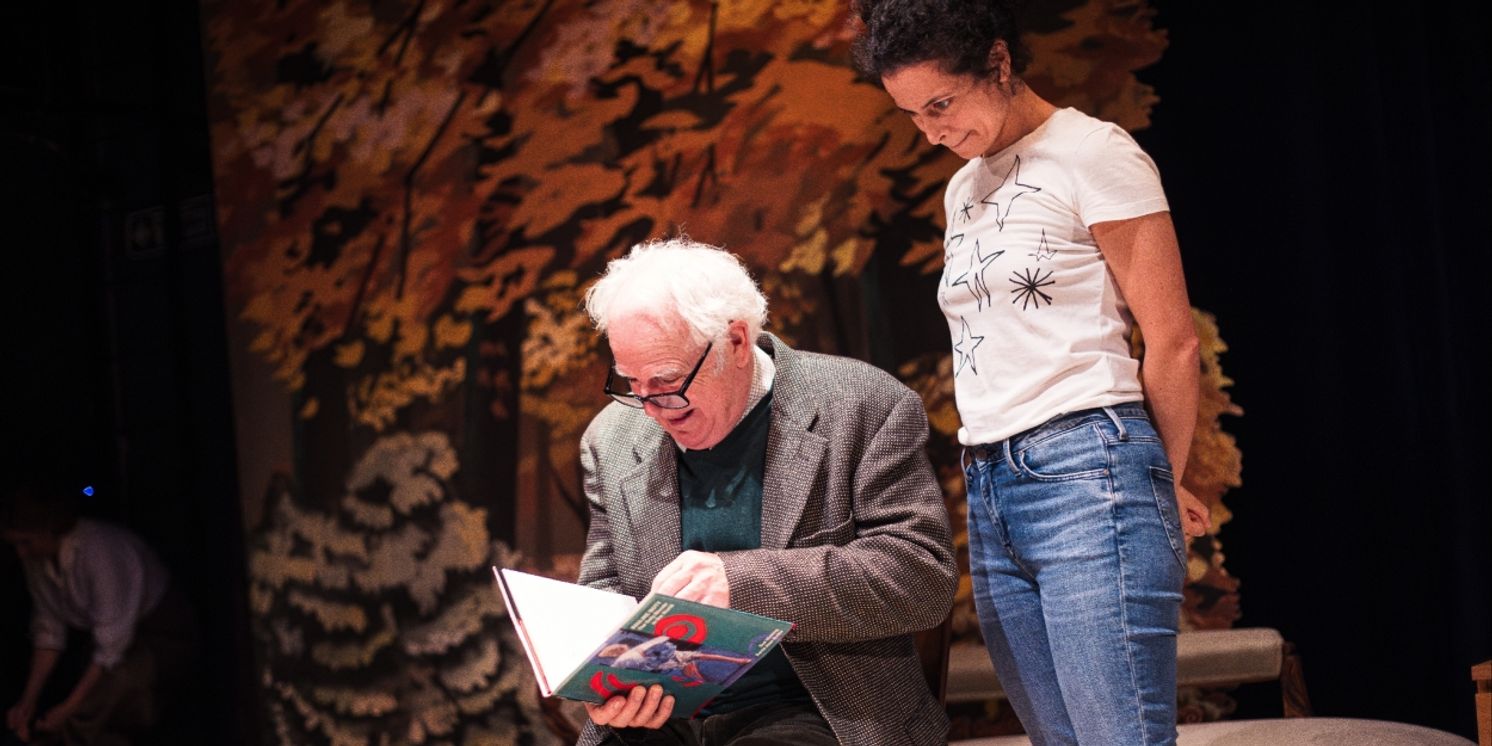
![]() A forgotten female artist. A new fence in the middle of a field. A TV antiques programme. A care facility. A homework assignment. A blonde wig. A suit of amour. A post office. Based on Ali Smith’s novel, Autumn is a curious collage of images and ideas, which weave in and out of each other with varying success.
A forgotten female artist. A new fence in the middle of a field. A TV antiques programme. A care facility. A homework assignment. A blonde wig. A suit of amour. A post office. Based on Ali Smith’s novel, Autumn is a curious collage of images and ideas, which weave in and out of each other with varying success.
At the centre of it all, however, is an unlikely friendship, originally formed between an eight-year-old girl and the elderly man next door. Feeling neglected, young Elisabeth (Rebecca Banatvala) spends hours with her neighbour Daniel (Gary Lilburn), talking about art, music, and storytelling. The narrative, if it can be called one, flickers back and forth between these memories, and a present day Elisabeth visiting her old friend in a care home. Lurking behind the modern timeline, however, is the 2016 Brexit referendum, and an immigration facility being set up in their town.
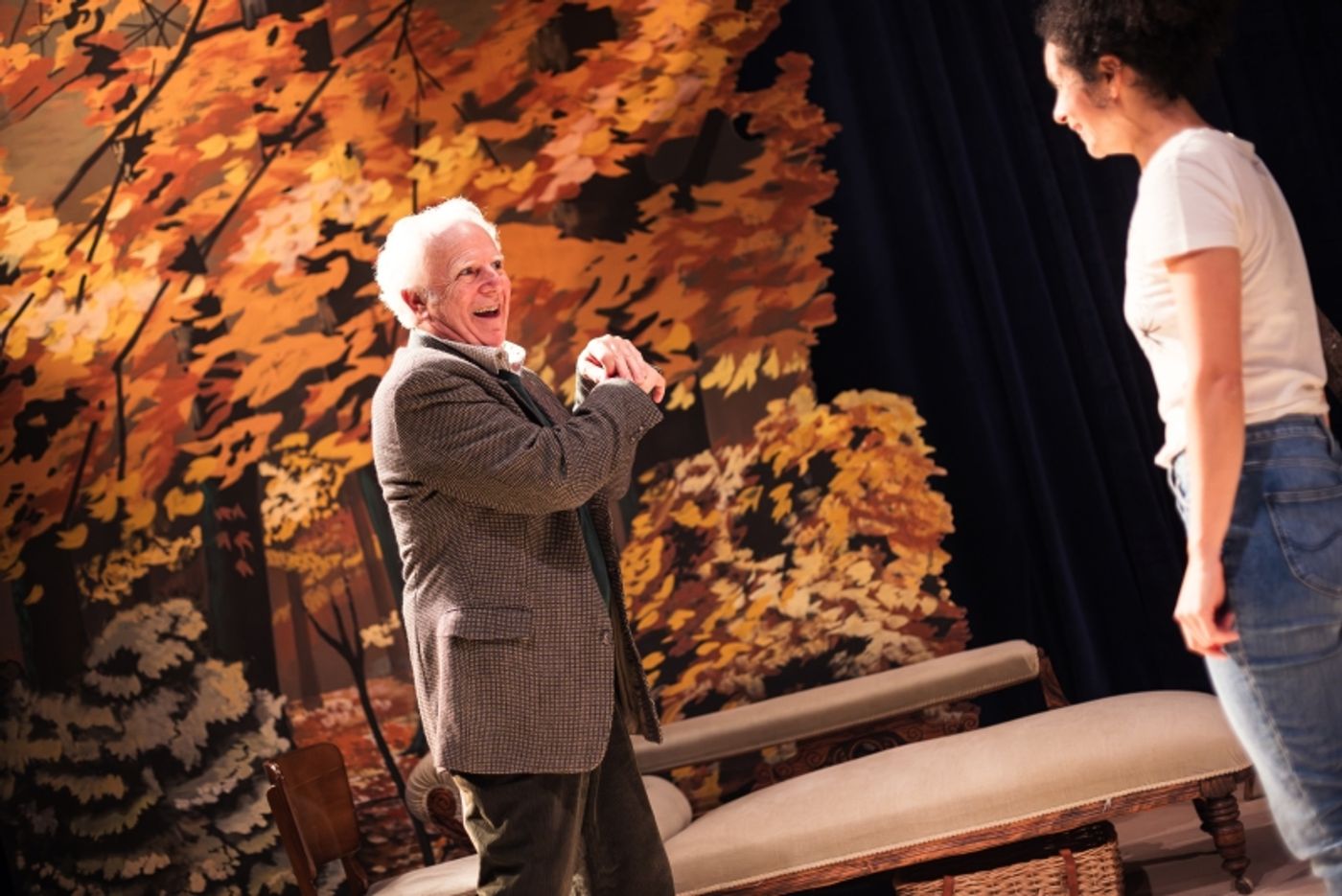
Photo Credit: Harry Elletson
Even without prior knowledge, it would be evident that Autumn is adapted from a novel. It’s a remarkably literary play, full of recurring symbolism and a distinctly erudite style and tone. At times, this works in the show’s favour, with the stage allowing visual symbols to be woven into the script and the different voices at play able to literally come and go.
Despite this, the result is a play that feels as though it’s still trying to be a novel. This is especially noticeable in a couple of extended, dream-like scenes where the primary narrative gets almost completely forgotten. These are interesting at first, but their stylised nature begins to cause pacing issues. Themes of imagination, truth, and reality are always present, but it feels as though these could have been played with more in bringing this story to the stage.
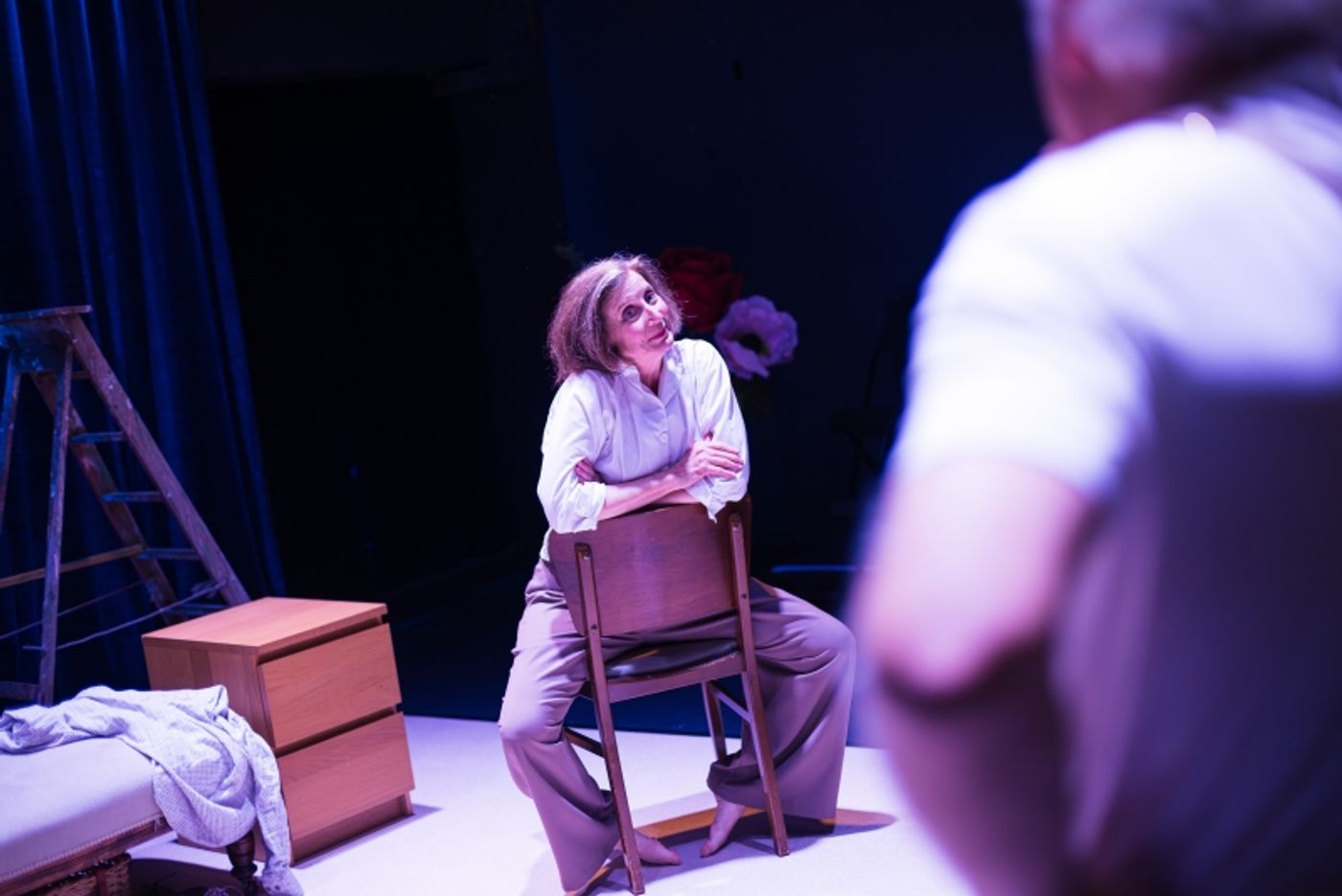
Photo Credit: Harry Elletson
The intricacy of the images and references in Smith’s original text lead to a play with an overly long run-time - it feels as though a sparser, freer adaptation might have been more effective. Nonetheless, writer Harry McDonald is clearly skilled at his craft, and manages the dense text quite deftly.
There are some moments of magic in Charlotte Vickers’ direction, such as when furniture wrap becomes the whirling sea of the tempest, or when a suit of armour becomes a dead body on the shore. Characterisation is also handled well, especially the relationships between Elisabeth and Daniel, and Elisabeth’s mother (Sophie Ward) and her eventual love interest (Nancy Crane).
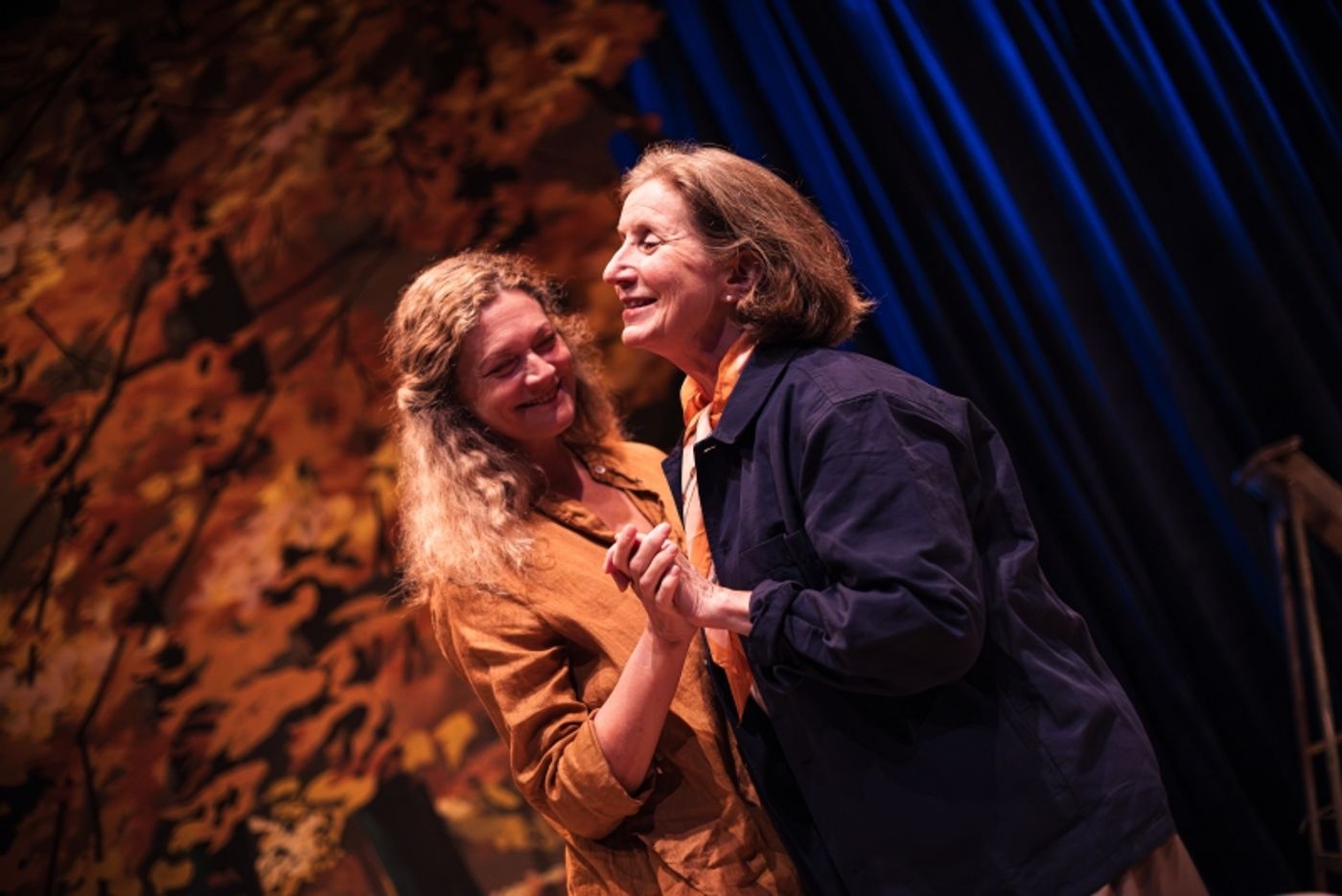
Photo Credit: Harry Elletson
The show’s more frustrating moments come when the performances become too whimsical: Banatvala’s scenes as a child are difficult to execute, and some of Crane’s dream sequences lose their grounding. With that said, this cast are a very strong ensemble, working together with charm and agility as they slip between places, times, and echoes. This is especially aided by Ali Hunter’s subtle but effective lighting design, which elegantly moves the story along.
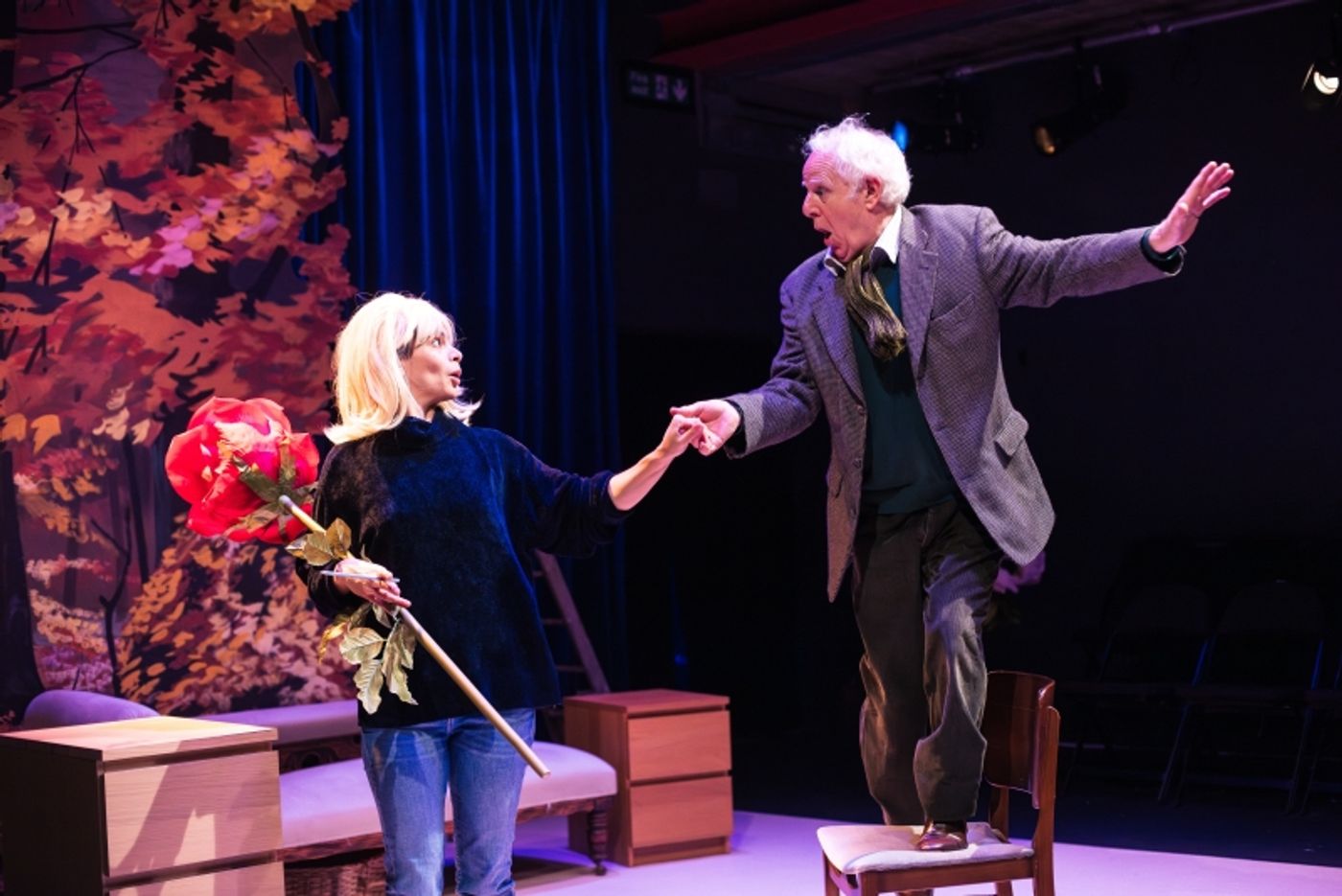
Photo Credit: Harry Elletson
A ponderous, intellectual tale, the overall impression is that Smith’s text is not one especially suited to theatre. In this production, however, McDonald and Vickers make a valiant attempt, bringing the novel to life with levity and an eye for detail.
Autumn runs at Park Theatre (Park90) until 2 November
Photo Credits: Harry Elletson
Reader Reviews
Videos

